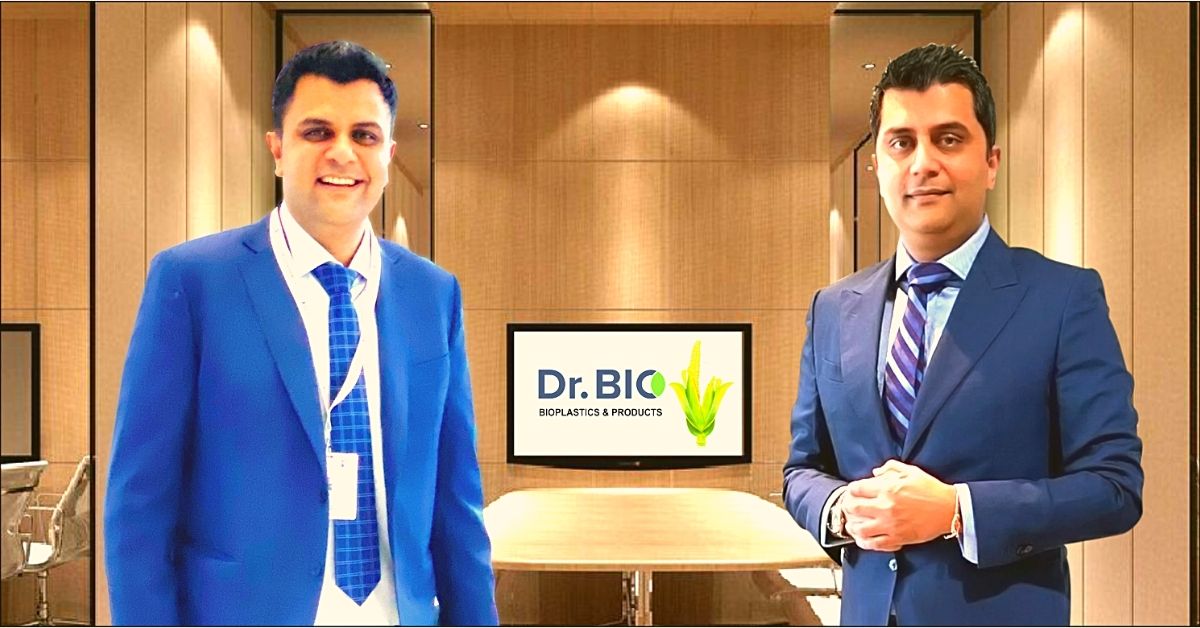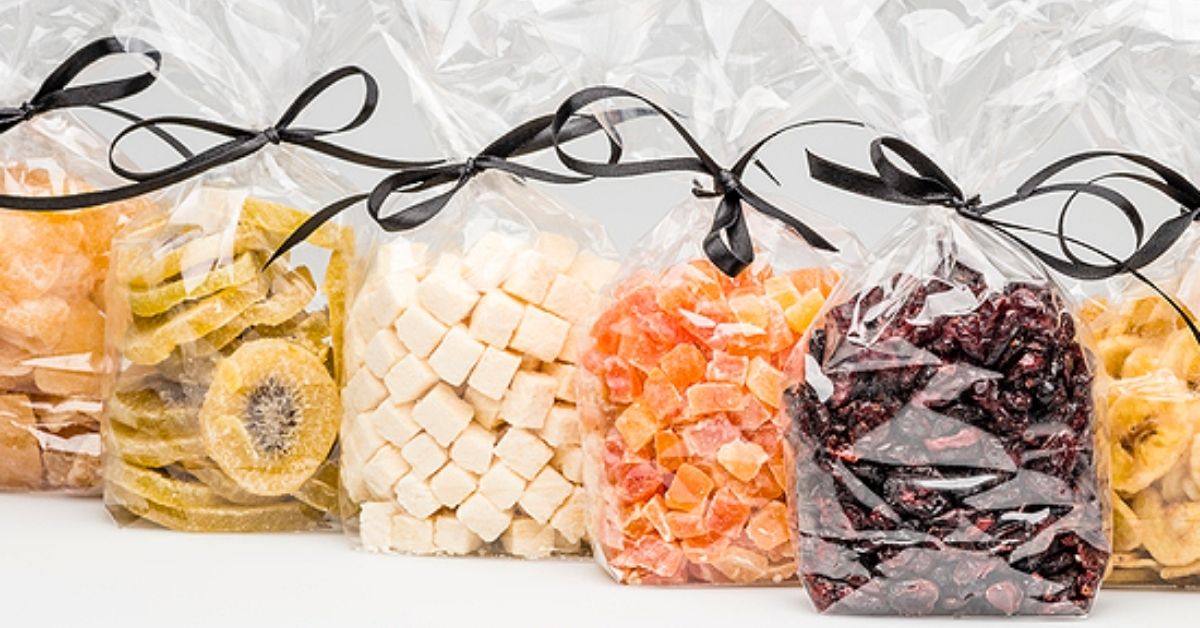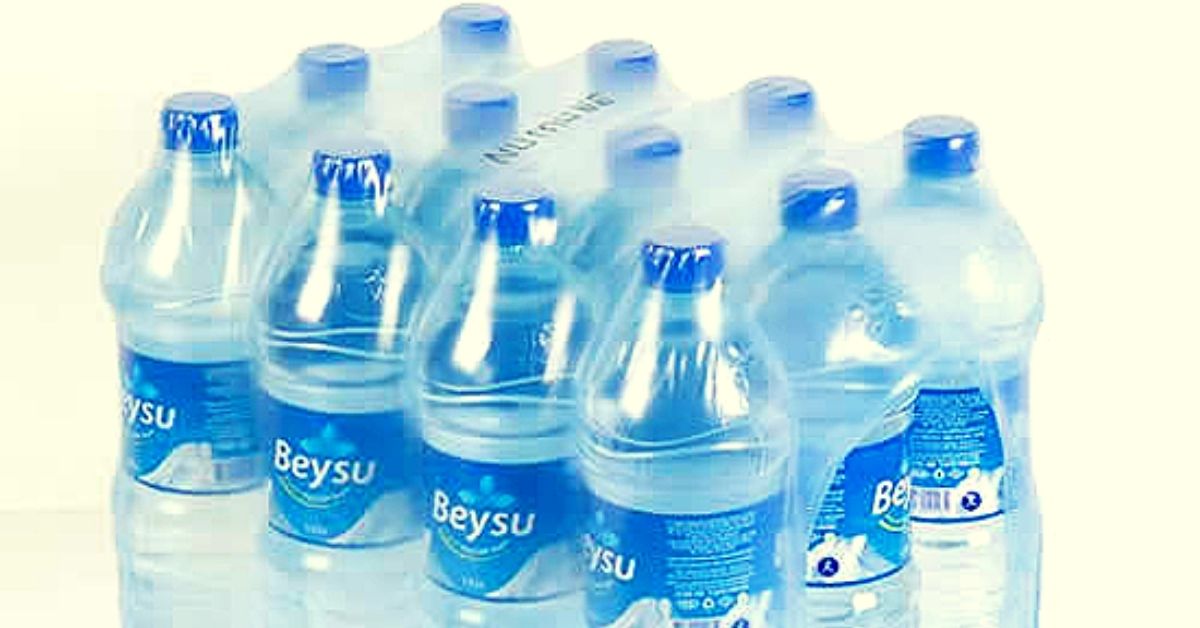Gurgaon-Based Brothers Make Bioplastic From Corn Starch That Composts in 6 Months
Hi-Tech is the first company in the country to manufacture plant-based bio-polymer. Their latest installment, Dr. Bio, has received approval from the Institute of Petrochemicals Technology and can replace single-use plastic like drinking straws.

According to estimates by the Central Pollution Control Board (CPCB), India’s national per capita plastic waste generation stands at 7.6 gm per day. The official CPCB study goes on to state that India produces an astounding 3.3 trillion grams of plastic per year.
As per a 2015 study by the CPCB, nearly 66% of plastic waste consisted of “mixed waste—poly bags, multilayer pouches used for packing food items, etc. (belonging to HPPE/ LDPE or PP materials), sourced mainly from households and residential localities.”
The study noted that this sort of plastic waste could not be recycled. Further, a global material balance study on plastics found that “79% of the total plastics produced in the world enters our environment as waste. Only 9% of the total plastic waste in the world is recycled”. In India, meanwhile, according to the Union government, of the 25,000 tonnes of plastic waste generated every day, 40% remains littered and uncollected. So, what’s a possible solution?
Introducing Hi-Tech International, a Gurugram-based venture co-founded by brothers Mukul and Siddharth Sareen, which manufactures a plant-based biopolymer called Dr Bio. The venture claims that this bio-compostable plastic will dissolve in the soil. In the long run, the brothers believe that Dr Bio can be used to replace single-use and multi-use plastic products such as bottles, straws, cups, disposable cutlery, polybags, etc. with bio-compostable plastic.
(Above image of co-founders Mukul and Siddharth Sareen courtesy Hi-Tech International)
Hi-Tech is the first company in the country to manufacture plant-based bio-polymer. Their latest installment, Dr. Bio, has received approval from the Institute of Petrochemicals Technology (formerly known as Central Institute of Petrochemicals Engineering & Technology or CIPET). They believe this uniquely positions Hi-Tech to “redefine and transform the plastic industry towards sustainable bio-compostable plastic.”
Backed by a 250,000 sq ft manufacturing facility in Ludhiana for commercial manufacturing of the biopolymer, the company believes that it’s “well poised to create a strong foothold for itself even as the government takes stringent measures to phase out single-use plastic”.
“Our bio granules are made entirely from different biomass materials, although there are different blends for end applications like bottle grade or film grade. One of the major components is starch, primarily corn starch. Other components include tapioca starch, lactic acids, poly-lactic acids and earth minerals for better tensile strength. These are all compostable and biomass materials that can be eventually eaten up by worms and disintegrated. Dr Bio can also assist as composting material. Most importantly, when it goes back to the soil, it works as a nutrient rather than a deterrent to the local environment,” says Mukul Sareen, Director of Business Development at HiTech Group, speaking to The Better India.
Arriving at Dr Bio
Incorporated in 2003, the company manufactures niche products for a variety of ventures across different industries like agriculture, automobile, steel, oil and gas, etc. Starting with just three employees, today the venture employs over 1100 people across seven manufacturing plants in India and one joint venture in the United States. The company also has licensed partners in Western Europe, Africa, Asia and South America. They export their niche technologies to 45 countries. With over 3,000 customers in India and about 10,000 worldwide, they’ve made their presence felt across different sectors with products like Keep it Fresh, which reduces post-harvest losses in fruits and vegetables by increasing their shelf life.
“Our newest instalment is Dr Bio, in which we are making compostable polymer films and compostable polymer resins. We are making bioplastic granules from which various products can be made like bioplastic films, cutlery, bottles, disposables, etc. Plastic straws, for example, are a big menace. They don’t degrade for 1,000 years, whereas straws made from our bioplastics degrade in three months and completely compost within six months,” claims Mukul.
Since 2005, the Hi-Tech Group has been making other kinds of biodegradable plastics like photodegradable plastics, which breaks up in sunlight but are not compostable. They’ve also been making some enzyme-based bioplastics. However, in these products, the major plastic component is still fossil fuel. With a lot of bans on such plastics coming forward in Europe and the US, the venture took initiatives to come up with solutions.
“Back in 2017-18, when the Indian government issued very strict norms regarding plastic waste, Hi-Tech International became the second venture in India to obtain an EPR (Extended Producer Responsibility) registration. That was when we decided that sooner or later, we have to move away from fossil fuel plastic to compostable plastics,” he says.
He further adds, “Instead of buying bio-polymers or bio-plastics from Western European countries or China, we started our R&D and investments in making our bioplastic granules. Although it took two or three years of development and nine months of testing with the CIPET lab, we finally got our approvals in June 2021.”
Since then, the company has been actively working with clients in the FMCG industry, liquor industry and e-commerce. They are also running a series of seminars and training programmes for various industries to raise awareness about this indigenous technology.
Prior to Dr Bio, all bio-plastics were being imported. “We are the first Indian manufacturers for compostable bioplastics that give the Indian end-user greater reliability to move away from imports. We are much more economical compared to the import options available,” he claims.

Expanding Influence
At the moment, their manufacturing capacity of compostable bioplastics is around 8,000 tonnes per annum. By January 2022, they are looking to expand it to around 21,000 tonnes per annum. Currently, Dr Bio is being sold both internationally and in India to e-commerce companies for their mailer composter bags and cosmetic companies for compostable bottling.
Products sold by FMCG companies have a shelf-life of about a month, and there is so much waste being generated because of it. They are also making disposable cutlery that goes to retail and trade channels, and are pitching them to various fast food restaurants across India.
They are also working with the paper industry, where a lot of paper is being laminated with plastic which renders the paper non-recyclable. Conventional plastic can be recycled, but paper laminated with plastic cannot. Hi-Tech is working with major paper manufacturers to help laminate their paper with bio-plastic.
There are also a lot of organisations that buy granules from Hi-Tech and they make carry bags, garment bags, shopping bags, waste disposal bags and biohazard plastic bags for hospitals.

In Tune With Regulations
According to this Times of India report, “The Union government, by amending the rules, is banning the use and manufacture of plastics thinner than 75 microns (plastic bags thinner than 50 microns were banned earlier) in a phased manner, from September 25 to December 2022.”
From December 31 next year, polythene bags under 120 microns will be banned. The ban will not apply to commodities made of compostable plastic. Although polythene bags with thickness less than 50 microns are already banned in the country, the government has chalked out a phased manner of banning-single use carry bags as well as other commodities.
“Although it’s more expensive in per kg terms, there are new laws in place where a 50 micron plastic will be replaced with 75 microns and then 120. This means that if you’re using a conventional plastic measuring 50 microns, you can still use a 50 micron bio-plastic without changing it to 75 to 120,” Mukul claims.
He continues, “The cost of bio-polymer starts around Rs 220 per kg, and it goes up to Rs 380/kg, depending on the application. Meanwhile, the cost of conventional plastic is around Rs 120/kg. Eventually, you’ll accrue a saving of 20-30% with the new laws in place due to minimum thickness limitations on traditional plastics that do not apply to compostable plastics. Bio-plastics have been excluded from the plastic waste management rules. The bioplastic we are making can go into the recycling stream with LDPE, which is the most commonly used plastic bag and HDPE. It can be mixed with these plastics in the recycling stream. If it ends up in a landfill, Dr Bio can completely vanish within a span of six months.”
Other advantages of adopting compostable bioplastics like Dr Bio is that they have the same tensile strength as conventional plastic, he adds. Physically, there is no visual difference between the two for the end consumer, and doesn’t require much adaptation.
“Our compostable bioplastics are processed at around 130 to 140 degrees Celsius at which most pathogens get killed. Given how desperate the plastic waste problem is in India, it has brought users closer to the realisation that we need to transition to materials like compostable bioplastics,” concludes Mukul.
(Edited by Yoshita Rao)
Like this story? Or have something to share? Write to us: [email protected], or connect with us on Facebook and Twitter.
This story made me
-
97
-
121
-
89
-
167
Tell Us More
We bring stories straight from the heart of India, to inspire millions and create a wave of impact. Our positive movement is growing bigger everyday, and we would love for you to join it.
Please contribute whatever you can, every little penny helps our team in bringing you more stories that support dreams and spread hope.



















